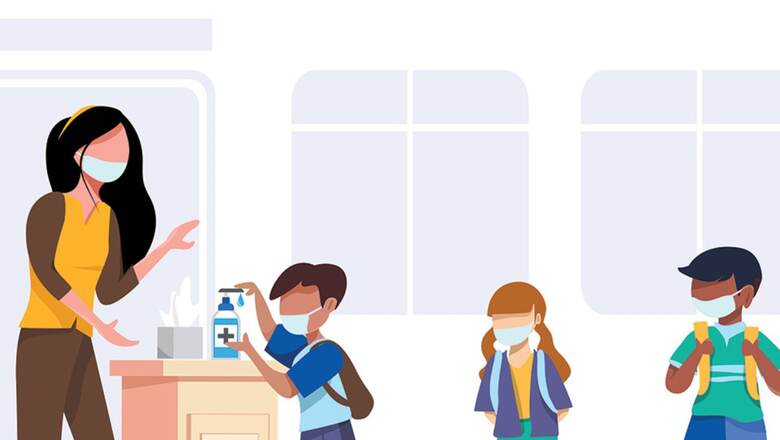
views
The hummingbird effect is a term coined by Steven Johnson, a popular science writer and author of the book How We Got to Now. He uses this term to describe how an innovation or a discovery in one field can trigger changes in seemingly unrelated fields, creating a network of unexpected consequences and opportunities.
In India, we are no strangers to this phenomenon. In just the last decade, we have borne witness to how much our cities and public spaces have changed in response to the Swachh Bharat Mission. It isn’t just the accessibility of toilets, though that is a big part of it. It is a change in the way we see ourselves. The Swachh Bharat Mission began with toilets, but forever changed our relationship with litter, with paan spitting, and other behaviours that were once synonymous with India’s densely populated cities. Our cities aren’t perfect, yet. But they are clean.
In much the same way, Harpic, India’s leading brand in the lavatory care segment, set in motion an innovation that has changed the lives of thousands of sanitation workers for the better: The Harpic World Toilet Colleges (HWTC). Established in 2016 with the stated objective of improving the quality of life of sanitation workers through their rehabilitation by linking them with dignified livelihood options, HWTC operates as a knowledge sharing platform with an aim to uplift the lives of the sanitation workers by educating them about their rights, health hazards, use of technology and alternate livelihood skills.
The butterfly effect of the HWTC is truly impressive in scope and scale.
The Problem
India’s sanitation workers often come from backward and marginalised communities. The work they do is perceived as ‘dirty’, they are often poorly educated (if at all) and therefore, subject to exploitation. Moreover, they often work in the unorganised sector, where it isn’t uncommon to find that these people have been stiffed on their meagre wages for minor infractions.
The work they do is inherently hazardous: human wastes carry pathogens for several illnesses, and sewers and septic tanks often fill up with noxious fumes and gases that can cause sanitation workers to lose consciousness. Over the years, several incidents of accidental drowning deaths have occurred in these situations because the sanitation workers were not appropriately equipped.
HWTC broke this problem down into its constituent parts:
- Unnecessary disease and risks arising from a lack of awareness about safety procedures and equipment
- Dehumanising behaviours arising from a perception that the work is dirty.
- Exploitation arising from the ‘unskilled’ status of these workers and their lack of awareness of their rights.
- Acceptance of poor working conditions in the unorganised sector arising from a lack of other options
The Solution
HWTC has taken a holistic approach to empower these workers through a combination of education, skill development, placement programmes and increasing awareness about their rights. As more and more HWTC graduates are able to improve their circumstances as a result of better wages, better health and safety, a sense of respectability and opportunities for growth; it inspires others in their peer group to aspire to better.
HWTC’s training programs cover a wide range of topics, including safe sanitation practices, waste management, and the use of protective equipment. These skills not only make them better cleaners, but also protect their health. For example, learning about the dangers of faecal oral transmission and exposure to cleaning chemicals has significantly reduced health risks amongst these workers.
HWTC also actively collaborates with various organisations to create better employment opportunities for women sanitation workers. This includes placements in hospitals, hotels, and other institutions where sanitation and hygiene are critical. These jobs not only pay them well, but also bring benefits like PF, ESIC, and insurance which sow the seeds of building wealth in these households.
HWTC invests in their soft skills – after all, once in the real world, these workers will have to champion themselves when they ask for protective gear, better working conditions, and growth opportunities. Soft skills are critical to navigating all of these situations.
The Butterfly Effect
2
To truly appreciate the human impact HWTC has had, we need to look at individual stories.
Vandana’s Journey to Empowerment
Vandana, at 32 years old, had resigned herself to a life of limited opportunities. She worked as a toilet cleaner at a local police station after leaving her studies due to financial constraints. Training at HWTC changed her life’s trajectory by both enhancing her technical skills and by building her confidence.
Today, Vandana isn’t just a sanitation worker; she is in charge of counselling for family violence-related cases at the same police station. Her brother, inspired by her journey, completed his Master’s in Social Work. Vandana’s story is a testament to the transformative power of education and personal growth, and the ripple effect that one person’s growth can have.
Rani Devi’s Triumph Over Adversity
When Rani Devi’s husband left, she went from being a domestic helper to working as a sanitation worker. However, her connection with UNFPA and subsequent training at HWTC changed the course of her life.
Under Rani’s leadership, a women’s mechanised cleaning cooperative was formed. They now work with pride and dignity in Patna city, cleaning sewers and drains with machines, reducing the risk to human lives. Rani Devi’s story showcases not only personal growth but also resilience in the face of adversity. Once again, her growth led to growth for several of her peers.
An Ecosystem of Change
For Harpic, the establishment of HWTC is just one part of the larger program to build awareness around toilet access, toilet hygiene, and the upliftment of the sanitation workers who form the backbone of our sanitation efforts. Three years ago, Harpic joined hands with News18 to create Mission Swachhta aur Paani, a movement that champions the cause of inclusive sanitation, equality for all genders, abilities, castes and classes and the strong belief that clean toilets are a shared responsibility.
Mission Swachhta aur Paani is using its platform to spark necessary conversations and find realistic solutions to these problems through dialogue between key stakeholders. It is also raising awareness, and educating the larger public about these key issues that affect all of us. This article is part of it, as are hundreds others that shed light on various aspects of the sanitation work that lies ahead.
What we talk about matters. Conversations spark action. Add your unique voice to this conversation, and do your bit to steer us towards a Swasth and Swachh Bharat, here.



















Comments
0 comment